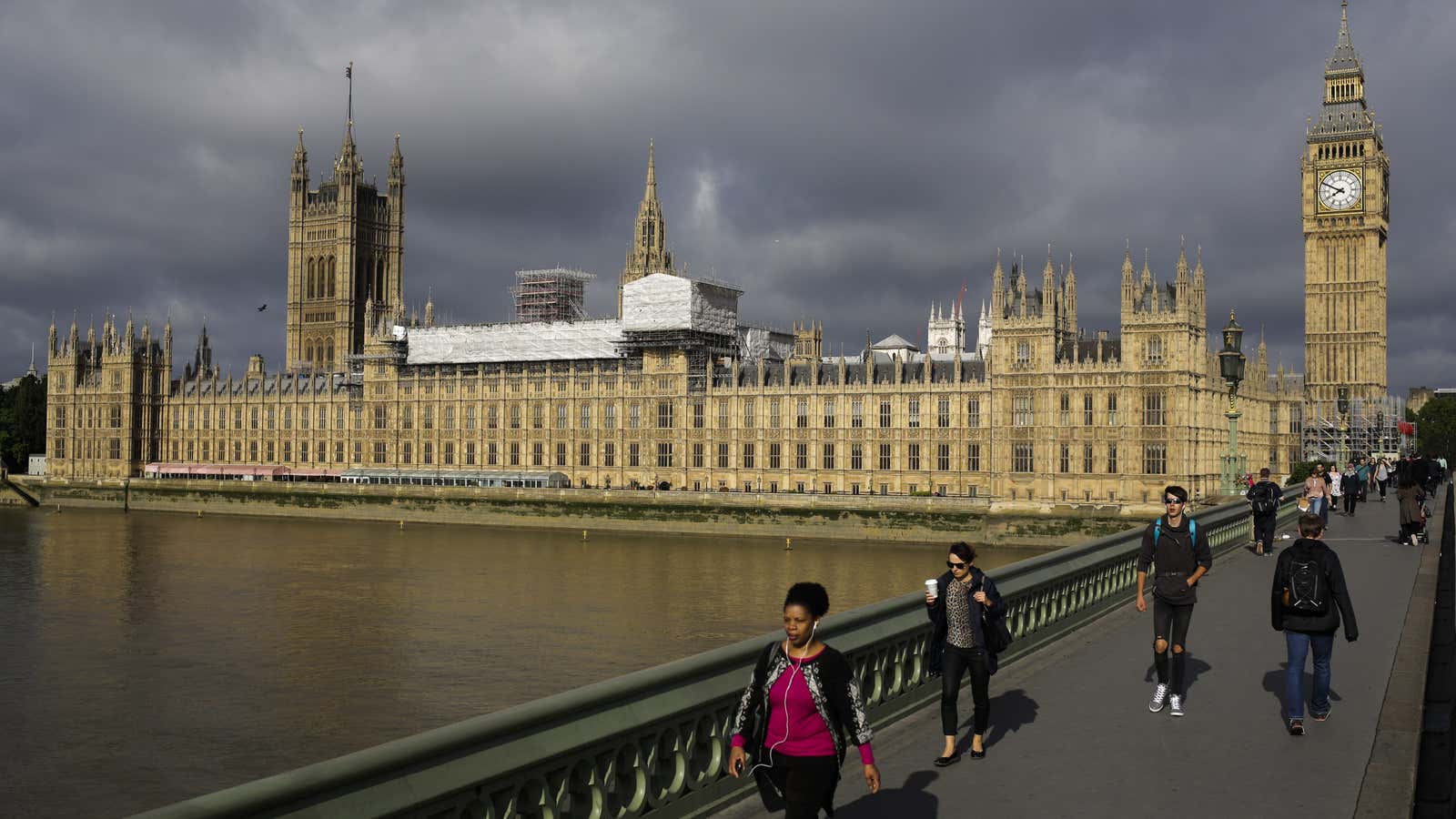On Dec. 5 the EU will publish a blacklist of countries that have “harmful tax practices.” By its own criteria, that should include six EU member states, according to a report by the Tax Justice Network, an NGO.
Those countries are Luxembourg, Ireland, the Netherlands, Cyprus, Malta, and the UK. The first five don’t have to worry since the EU says it won’t blacklist its own members, but when Britain leaves the bloc in 2019 it could find itself named and shamed.
The EU has three criteria it uses to assess whether a country is a tax haven. These countries fail on “fair taxation,” which is pretty vague. The Tax Justice Network’s report is based on a (seemingly slightly playful) “best guess at what their criteria mean,” according to Alex Cobham, director of the group and co-author of the report. Britain falls short because it acts as a “tax conduit,” the report says, with low taxes on moving capital that allow multinationals to shift profits to low-tax jurisdictions while paying little or nothing where it was earned.
If the EU and Britain manage to come to a peaceful agreement on Brexit negotiations, it’s unlikely that the UK will find itself on Brussels’ blacklist—the report notes that the criteria already seem designed to make sure the US doesn’t fall foul of the criteria. But implicit in the possibility of a “no deal” Brexit is that Britain turns itself (paywall) into more of a low-tax, high-secrecy jurisdiction in order to lure businesses to its shores. If that is the case, the haven blacklist is one measure the EU could use to punish Britain. For that to be a serious threat, though, the EU will have to impose meaningful punishments for countries it deems tax havens—it has relied on symbolic measures so far.
The report counts 41 jurisdictions in total that should appear the list, though the EU warned 53 places this month that they could be blacklisted, according to the Financial Times (paywall), suggesting it may interpret the rules more strictly than the Tax Justice Network. The UK had pushed for British Overseas Territories like the Cayman Islands and Bermuda to avoid being called out, but changed its position after the Paradise Papers were published, the FT reports.
